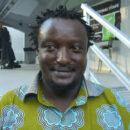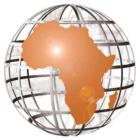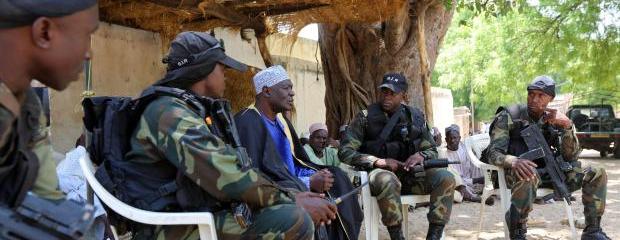They survived Ebola. Now they want to teach others to survive COVID-19.

Ebola survivors across West Africa could be a very useful knowledge resource to governments in their pandemic response strategies. Will they take the opportunity?
Yusuf Kabba remembers clearly the first time he heard about the coronavirus. It was 5am and he was listening to the BBC World Service when it announced news of a novel disease outbreak in Wuhan, China. It was still January, months before the World Health Organisation would declare a pandemic, but already Kabba felt a wave of shock and déjà vu.
As the broadcaster spoke of quarantine, isolation and infection rates, his mind raced back to the last time he’d heard those words: the Ebola outbreak of 2014-16. That epidemic led to over 11,000 deaths in Guinea, Liberia, and his home country of Sierra Leone. It almost killed Kabba himself.
“It brought back flashbacks to the time I became infected with Ebola,” he told African Arguments, almost in tears. That was a deeply traumatising time for the affected communities. Kabba survived but he knows many who did not, including the girl in the bed next to him in the hospital whom he was too weak to help.
Anthony Naileh, in Liberia, was similarly disturbed when he first heard about the coronavirus. He is also an Ebola survivor, having caught it in 2014 from his wife, who in turn got the virus from her nephew, a nurse, who died. When he heard about a new deadly virus, Naileh started having sleepless nights.
“It reminded us of 2014,” he said. “I was even nervous about going out, and I was worried for my wife and three children.”
Kabba and Naileh were not the only ones reminded of the Ebola epidemic. In their roles as presidents of the Sierra Leone Ebola Survivors Association and Liberia Ebola Survivors Network respectively, they started receiving calls from their thousands of members. Communities for whom the devastation of the Ebola outbreak was still fresh feared what might happen if COVID-19 reached their countries.
Both Kabba and Naileh called urgent meetings at which it was agreed that they would tell all their members to take every possible precaution in terms of following health guidelines and avoiding crowded places.
“I told all my members that we were no longer safe and that we should all stay at home, and not to interact with anyone outside of our family,” Kabba said.
Helping themselves but also helping others
Alongside protecting themselves, however, the survivors also wanted to help others, drawing on their experience of having caught and survived a virulent disease. Their initial reaction had been to stay at home, but they eventually decided they had a role to play.
Naileh and his membership in Liberia organised a sensitisation programme. Ebola survivors went from house to house across different communities to raise awareness about COVID-19 and to help with contact tracing of probable cases.
“We have been into the various communities using our own stories to tell the people to be safe,” said Naileh, who tells people “do not deny that the virus is real, maintain the health protocols, and take care of yourself”. In Freetown, where survivors have similarly spread the word, Kabba tells people to be hopeful. “They have to stand as conquerors of the virus,” he said.
The survivors associations have also reached out to their states – both of which declared states of emergency and imposed lockdown measures – to offer their contributions in more formal ways. “We the survivors can support the government’s efforts in curbing the coronavirus through social and community mobilisation programmes,” said Kabba. “We have the expertise. There are survivors that are ambulance drivers, healthcare workers and other support staff who could be on the frontlines. We have also done a paramedic preparedness training.”
In Liberia, the Ebola Survivors Network sent a proposal to the government to raise awareness in Lofa County, an area that was particularly vulnerable during the Ebola outbreak. The group wants to organise outreach programmes there and requested state support in terms of transportation, accommodation and food in addition to information materials (flyers, posters, megaphones) to do so.
However, neither group party has received a positive response. “We are a potential resource base, but it’s sadly just impossible without some form of external resources,” said Kabba.
Deserving of government support
For the networks in Sierra Leone and Liberia, the government’s lack of response feels familiar to many of their members.
In Sierra Leone, for instance, the government has given a cash transfer of 250,000 leones ($27) to around 8,000 people with disabilities and other vulnerable groups, but Ebola survivors were not included. “We deserve government’s support, but it is not happening,” said Kabba. “A lot don’t understand our vulnerabilities. They include orphans and widows.” Kabba says he raised the survivors concerns with the government but is yet to receive a response.
According to Alpha Sesay, a human right lawyer and advocacy officer at Open Society Foundations, survivors require special support due to their particular economic vulnerabilities. “Ebola survivors continue to deal with life-changing health complications which warrant continuous attention,” he said.
In Sierra Leone and Liberia, Kabba and Naileh continue to worry about the wellbeing of their membership. Lockdowns have added hardships on the communities and cases are continuing to rise. Sierra Leone has 1,547 confirmed cases and Liberia has 917 cases at the latest count. The Ebola survivors continue to pray for a cure.







